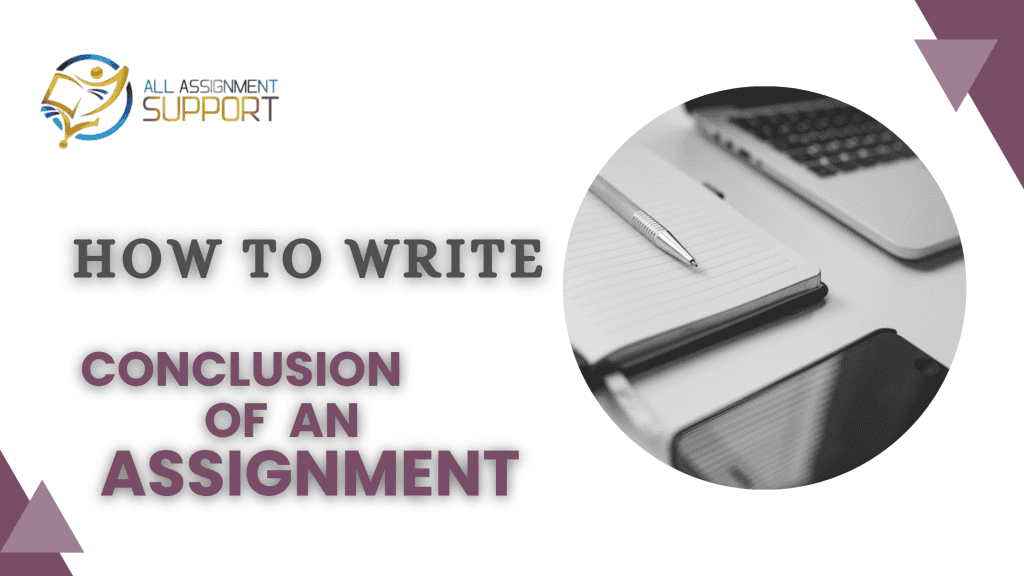Table of Contents
ToggleWhat is a conclusion?
An end of something or the last paragraph of something, called as the conclusion. At the point when you write an assignment, you generally end by summarizing your contentions and reaching an end about the thing you’ve been expounding on. This is what basically a conclusion is defined.
What is a conclusion in an assignment?
Some may contend that conclusion is quite possibly the main parts of any assignment or paper or article. It’s your last chance to establish a decent connection with your reader. On the off chance that you can unhesitatingly say you’ve completely addressed the question presented, on your mind or are leaving the readers with an interesting thought, you’ve presented well. Explore a wide range of papers with extraordinary examples of conclusion.
When conclusion is used?
Conclusion is ought to be put to utilize any time you are writing an assignment, report or article that proposes or explores a thought, issue or event. This thought is alluded to as a thesis articulation and it gives the design and inspiration to the whole assignment. As such, it answers the “why” An end, then again, addresses the “so what” by explaining the place of the article and offering the reader an answer, question or knowledge into the topic that emphasizes why they should read this assignment.
Different types of conclusions
There are different types of conclusions are there depending upon the point which it gives to the reader is three primary functions:
- Editorialization:
Editorialization is primarily utilized in assignments where there is a questionable point, an individual connection or an appeal to convince the reader. This style consolidates the writer’s analysis about the topic and regularly communicates their own interest in the issue being examined. This sort of conclusion will utilize a story and a conversational tone to cause to notice concerns, understandings, individual convictions, governmental issues or feelings.
- Externalization:
Every now and again used in articles that approach a specific issue that is a piece of a significantly more complex subject, an externalized decision gives a progress into a related yet separate theme that drives readers to additionally build up the conversation. Indeed, it’s frequently considered as another presentation that incorporates another proposal altogether, taking into consideration advancement into another likely assignments.
- Summarization:
This style is regularly used when expounding on specialized subjects with a more clinical tone, like overviews, definitions and reports. Since it rewords the significant thoughts of the article, it is regularly utilized in longer pieces where readers will require a token of the assignment’s central matters. Accordingly, it ought to stay away from reflexive references or emotional thoughts.
What to include in a conclusion?
A conclusion responsibility is to emphasize the inputs and theory of the assignment. All in all, it gives a feeling of conclusion and proposes that you have achieved the objective of the piece. Here are some vital viewpoints to remember for your decision to guarantee its adequacy:
- Finish with strong points on positive note.
- Convey the significance of your thoughts and the topic.
- Furnish the reader with a feeling of conclusion.
- Emphasize and sum up your primary concerns.
- Reword and afterward rehash your proposal statement.
Outline of Conclusion
- Point of sentence – Topic
This is the place where you rehash your proposition statement. Ensure it is reworded to stay away from excess.
- Attach sentences – Supporting
- Reword the significant points and contentions that you made all through the assignment.
- Clarify the meaning of the thoughts and how they all interface.
- Attach the major points and arguments that you made throughout the assignment.
- Explain the significance of the ideas and how they all connect.
- Shutting sentence – Closing
This is the place where you interface back to a point, picture or account that was made in the basic section. It is your last word regarding the assignment topic and provides the reader a feeling of a sense of conclusion.
3 Things to remember in Conclusion
- It’s not a place to repeat an introduction.
- It’s not a place to add the new content or make new arguments or place to raise new point.
- Also, remember It’s not just a summary of your body paragraphs, it is an effective place to end.
How to Write A Conclusion
Take an idea of your introductory paragraph write conclusion of your assignment but If it looks like a longer paper then a good place to start is looking at each paragraph and creating an idea of what you thought & what you wrote.
Structure of a Conclusion
- A conclusion paragraph is always an opposite of introduction paragraph.
- Remember that the introduction always begins with general point, a move to specific point, and ends at specific point.
Need help ? Contact All Assignment Support, Start chart Now ! We are Online.











